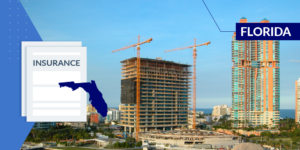
A recent discovery of 35 Florida contractors participating in an insurance fraud operation has been the center of an ongoing National Insurance Crime Bureau (NICB) investigation.
The criminals have allegedly been targeting already vulnerable areas impacted by Hurricane Ian. And with the Southeast’s unsteady insurance market circling the drain, there is a possibility of a greater influx of scammers hoping to take advantage of catastrophic weather effects.
This isn’t the first time Florida has been forced to deal with construction-related scams: A Villages-News report from May 2022 broke down the ways in which fraudulent roofing contractors can scam insurance companies into either settling disputes in court or fighting lawsuits, both of which can require huge sums of money. And it seems Florida’s teetering insurance industry is not equipped to handle much more pressure.
See: Florida Roofing Scams Have Insurers and Restoration Contractors on Edge
Contractor scams may worsen an already struggling property insurance industry
David Glawe, CEO of NICB, notes that the scam operations are “criminal enterprises” — and these scammers often use sophisticated tactics on vulnerable homeowners, like the ones who are especially struggling in the aftermath of weather events like Hurricane Ian.
The latest operation perpetrated by nearly three-dozen contractors is still under NICB investigation, and many details are still private. Investigators are reporting that these contractors are going door-to-door and preying on strung-out homeowners.
Recent incidents of contractor fraud are reminiscent of previous similar situations, like last December’s report of two Florida contractors taking advantage of homeowners and suppliers. Customers claimed to have paid for the construction in its entirety, only to then receive mechanics liens placed on their homes.
It’s important for homeowners and other contractors to do everything they can to protect themselves from damaging incidents like these.
Following a prequalification process is a vital way to ensure a contractor is reliable. Construction attorney Alex Benarroche broke down the steps to prequalification, noting that “you should have a checklist of the different characteristics you are looking for in a contractor, sub, or supplier. This list can include a number of different factors, but the big 3 are business information, financial stability, and safety record.”
Hurricane aftermath typically affects a wide range of industries
Aside from roofing scams, other instances of Florida contractor fraud appear to create a string of scams that harm the insurance market directly and threaten the future of the industry. What worsens this crisis is the ever-present fear of looming hurricanes, a rational worry made worse as Hurricane Ian made landfall early this month.
The insurance industry in Florida is already starting to feel the surge, and no stranger to the hurricane’s wrath than nearby Louisiana, which is experiencing its own insurance struggle.
More storm and flood-damaged property creates a need for insurance, something Florida is having trouble providing. Not only are premiums rising, some companies are backing out entirely, leaving homeowners few choices.
As State Senator Jeff Brandes firmly notes: “The simple truth is you can’t be the most hurricane-prone state and the most litigious state, and expect lower property insurance rates.”
With the inevitability of hurricanes and environmental devastation, the cost of damages is bound to go up. Just a year ago, Hurricane Ida’s wrath cost the United States almost $80 billion.
Staying informed will be crucial in the coming years, and with an influx of bad actors looking to commit fraud toward insurance companies, it’s important for contractors to do their research.